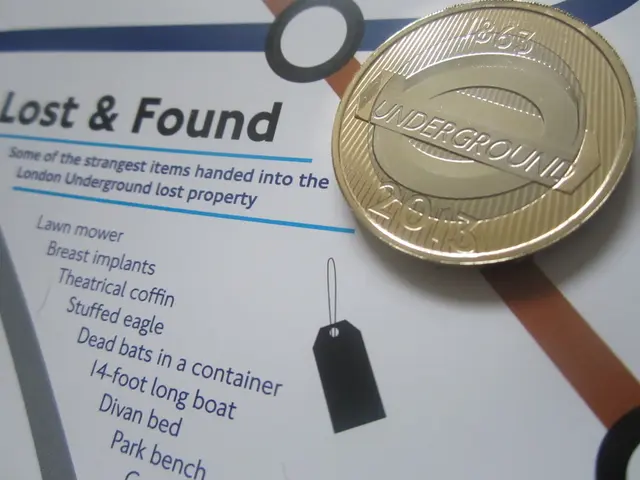Top Seven Strategies for Financial Planning during Summer
Sun's Out, Budget'sTight? A Practical Approach to Summer Spending
The sunny season is here, bringing a whole lot of fun and expenses that'll make your wallet groan. But it doesn't have to be that way! With a bit of smart planning and know-how, you can enjoy all the glory of summer without breaking the bank. Ready to take control? Let's dive in!
Forget Monthly Budgets, Focus on Seasonal Events
The typical monthly financial plan just doesn't cut it during summer. So, change gears and plan around specific seasonal events instead. Break down your summer dates into essential activities like family vacations, connections, social gatherings, and back-to-school spendings. Focusing on targeted events allows for more accurate budgeting and eliminates the confusion of questioning where your dough disappeared to [1].
Set Your Weekly Fun Money Allowance
Summer weekends frequently bring along last-minute invites to activities like weekend BBQ's or spontaneous beach days. Instead of letting these little extras throw your budget off balance, establish a weekly "fun money" cap for those unexpected moments. Whether it's $30, $50, or $100, having this pre-approved budget for those "oh snap!" moments gives you the freedom to say "yes!" to those impromptu events without guilt, while still setting boundaries on your spending [1].
Adapt to Seasonal Spending Changes
Summer comes with its own set of costs like higher gas prices, utilities, and travel, but lower expenses in heating. Review your monthly budget to reflect these seasonal variations, cutting back on non-essential costs wherever possible to ease summer spending pressures [2].
Get Creative with Low-Cost Summer Fun
Embrace an exciting array of free or low-cost options for entertainment, such as parks, hiking trails, or community events. Going this route will save you some cash while making it possible to enjoy all that sunshine has to offer [2][5].
Build in Buffer Zones for Unexpected Expenses
Every great budget needs some wiggle room, especially during the summer season.When creating your budget, account for a 15% buffer to cushion for any surprise expenses or price hikes. This built-in flexibility prevents minor overages from ballooning into major financial headaches [5].
The Power of the 24-Hour Rule
Temper your impulse purchasing tendencies during summer by implementing a 24-hour waiting period before making non-essential buys above $50.As the clock ticks, you'll find yourself reassessing the necessity of that poolside floatie or the designer shades—often concluding you don't actually need them [1].
Get Savvy with Multiple Savings Accounts
Create themed savings buckets specifically for your summer expenses—vacation, musical festivals, or even that seasonal vegetable CSA box. Keeping these funds separate from your regular checking account will help discourage dipping into emergency funds for everyday spending [5].
Master the Art of Summer Meal Planning
In summer, food costs typically take a big leap due to all those social gatherings, vacations, and those wonderfully tempting ice cream trucks. To combat this, create a summer-focused meal plan using in-season produce to minimize eating out costs. Other tips? Prepare picnic-friendly meals for beach days or park outings, research grocery stores at your travel destination, set a specific "dining out" budget for vacation days, and appreciate the savings that come with the abundance of seasonal produce [1][5].
Take Stock of Subscription Services Before Vacation
Before hitting the road, take inventory of your subscription services and consider pausing those gym memberships, meal kit deliveries, or beauty box subscriptions you won't need while traveling. Many services offer pause options rather than full cancellations, making it easy to manage expenses during your travel season [1].
Keep Your Budget Flexible
After all is said and done, summer is about making memories and having fun. Create a flexible budget that aligns with your priorities, giving you permission to indulge in what truly matters most—all while staying within your means [1].
- To ensure a financially manageable summer, consider adapting your budget to reflect seasonal spending changes, such as higher gas prices and lower heating costs.
- In order to save money on summer entertainment, explore free or low-cost options like parks, hiking trails, and community events.
- To accommodate unexpected expenses, build a 15% buffer into your budget as a safety net.
- Instead of impulsively purchasing non-essential items over $50, adopt the 24-hour rule by waiting before making a purchase, reassessing your need for the item.
- For effective budgeting, consider creating multiple savings accounts for special summer expenses such as vacation or musical festivals.








